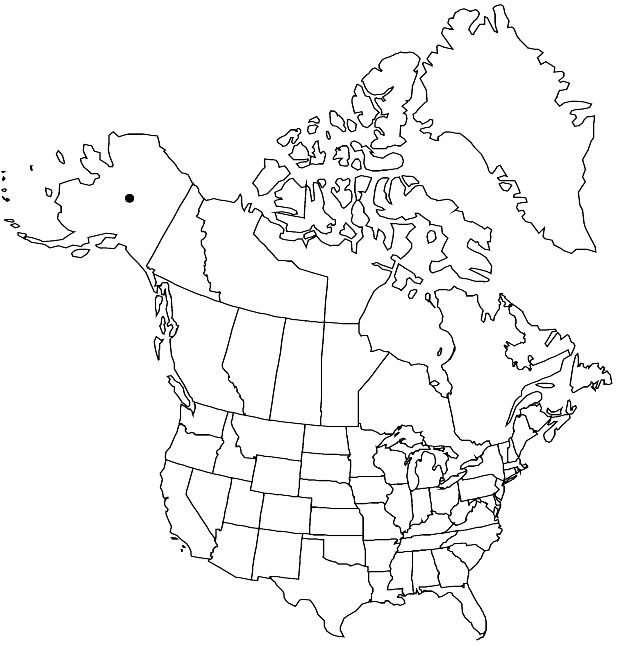Difference between revisions of "Cochlearia sessilifolia"
Contr. Dudley Herb. 3: 182, plate 46, fig. 1. 1941.
FNA>Volume Importer |
FNA>Volume Importer |
(No difference)
| |
Revision as of 20:24, 24 September 2019
Annuals. Stems simple from base, erect, branched (few to several) distally, 0.2–0.8(–1.5) dm. Basal leaves not rosulate (representing cotyledons); petiole 0.2–0.6 cm; blade spatulate to oblong, 0.8–1.6cm × 3–5 mm, base cuneate, margins entire, apex obtuse. Cauline leaves sessile; blade 0.5–1.7(–2) cm × 3–5(–7) mm, base obtuse (not auriculate), margins usually entire, rarely repand, apex obtuse. Racemes 3–7(–15)-flowered, (slightly elongated in fruit). Fruiting pedicels ascending to erect, 3.5–8(–12) mm. Flowers: sepals oblong, 1.8–2.2 × 0.7–1 mm; petals spatulate, (3–)4–6 × 1.5–2.5 mm; filaments 1.5–2 mm; anthers 0.3–0.4 mm. Fruits (crowded) elliptic to oblong, 8–12 × 3.5–4.5 mm, angustiseptate, (obtuse at both ends); valves not reticulate; septum complete; ovules 10–14 per ovary; style 0.2–0.5 mm. Seeds light brown, ovoid-oblong, 1.1–1.3 × 0.9–1 mm, coarsely papillate.
Phenology: Flowering Jul–Aug.
Habitat: Gravel bars, gravel spit in lagoon outlets submerged at high tide, seashores
Elevation: 0 m
Discussion
Of conservation concern.
Although Cochlearia sessilifolia was reduced to a variety of the European C. officinalis, it appears to be sufficiently distinct in habit, leaves, and fruit shape and size from the other North American species. In the absence of extensive field and experimental work, it is better to maintain this taxon as a distinct species. It belongs to the C. groenlandica rather than the C. officinalis lineage. Its annual life cycle has to be regarded as a derived character.
Selected References
None.
